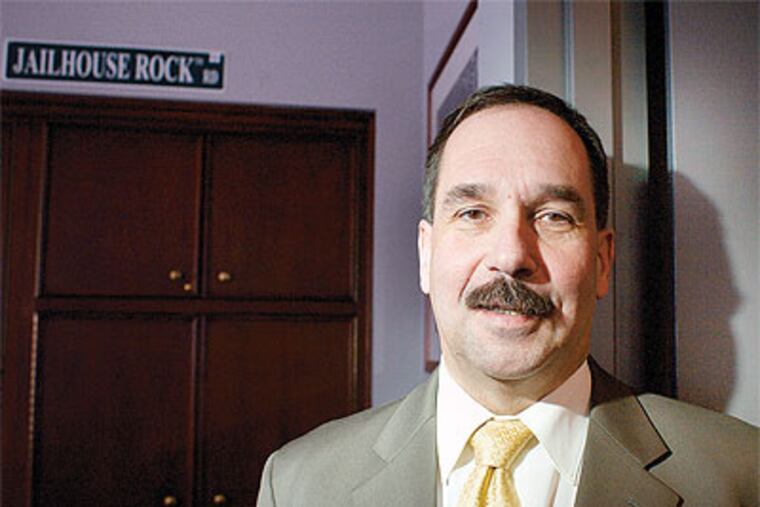Prison chief defends renewal of health-care provider
PHILADELPHIA Prison Commissioner Louis Giorla on Wednesday defended the city's controversial inmate-health-care provider, Corizon Healthcare, in his first public comments since the city agreed to renew its contract for $42 million per year despite a lower bid from another firm.

PHILADELPHIA Prison Commissioner Louis Giorla on Wednesday defended the city's controversial inmate-health-care provider, Corizon Healthcare, in his first public comments since the city agreed to renew its contract for $42 million per year despite a lower bid from another firm.
"During the company's tenure, health services at the Philadelphia prisons have undergone significant changes and improvements," Giorla said at a hearing organized by City Councilman Jim Kenney. "When we compared the providers, we felt that Corizon was more capable of rendering the services," he said afterward.
Giorla declined to answer many questions posed by Council members, citing the potential for a lawsuit from the Corizon competitor that made the lower bid. The contract, which the city can choose to extend for up to four years, will be signed Friday, he said.
Corizon, the country's largest prison-health-care provider, agreed to pay the city a record $1.85 million last summer after an investigation by Inspector General Amy Kurland revealed that the company had violated the city's requirements for contracting with companies owned by women, minorities or disabled people and fudged documents to cover it up.
The other bidder, Correctional Medical Care, is owned by a Spanish-Guatemalan woman and made a bid that would have cost the city $3.5 million less per year. Giorla declined to answer questions on what caused the administration to deem its level of care to be substandard.
Dr. Daniel Schidlow, dean of the Drexel University College of Medicine, also spoke at the hearing to defend Drexel's Hahnemann University Hospital, which had signed on to CMC's bid and promised to provide care.